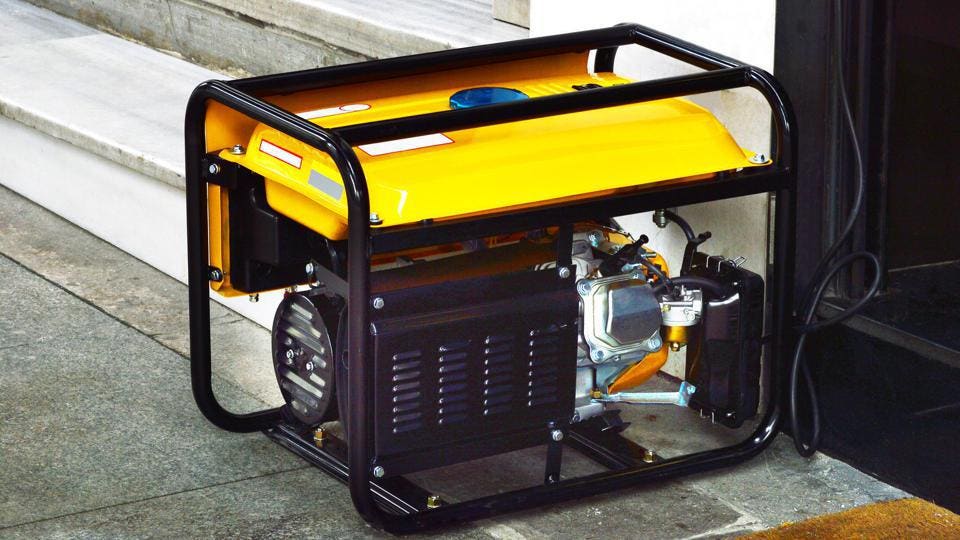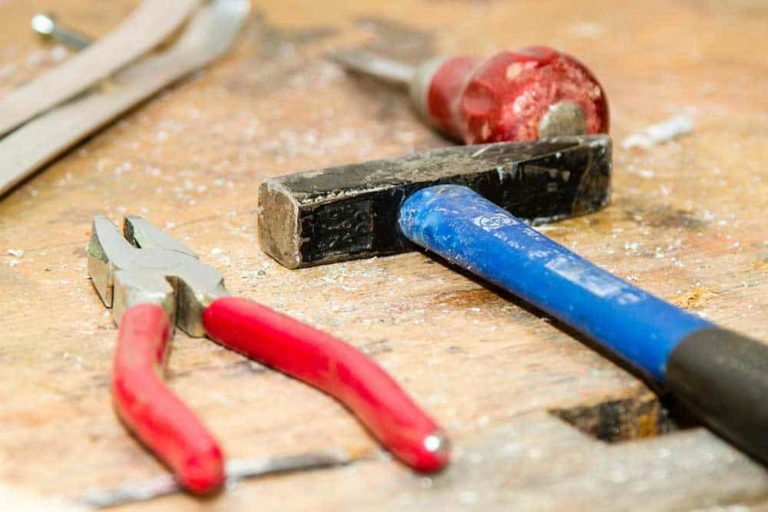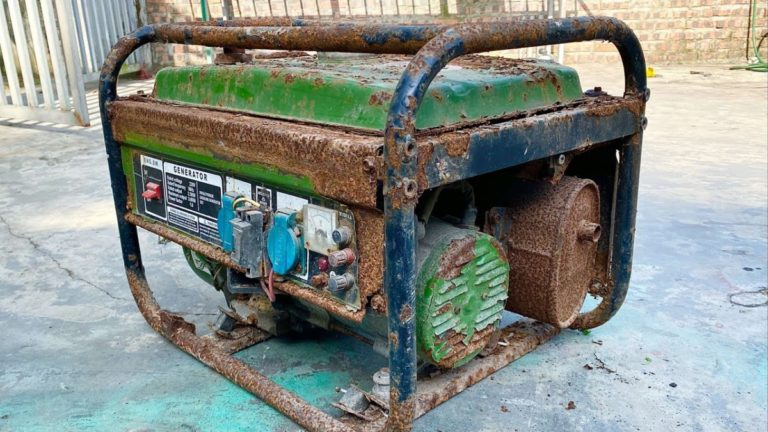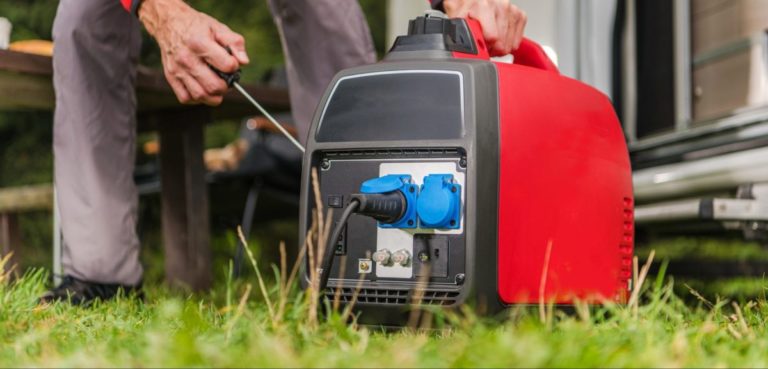Are you tired of living in the dark or relying on unreliable grid power?
Do you dream of harnessing the power of nature to supply your homestead with clean, reliable energy?
Look no further!
This comprehensive guide will walk you through the process of selecting the perfect generator for your off-grid homestead.
Whether you’re a seasoned DIYer or just starting out, we’ve got the expert advice and practical tips you need to choose the right tool for your needs.
From solar generators to wind turbines, we’ll explore the best options for powering your homestead, so you can finally kiss goodbye to those pesky power outages!
Determine your power needs
Start by calculating your power needs, including the electrical loads you want to power and the amount of energy you need to generate. This will help you determine the right size and type of generator for your homestead.
To start, you’ll need to calculate your electrical loads, which include all the appliances and devices that require electricity to function.
This can include lights, refrigerators, freezers, computers, and any other equipment you plan to power.
Next, you’ll need to determine the amount of energy you need to generate.
This will depend on the size of your homestead, the number of appliances you have, and how much energy each appliance requires.
For example, a small homestead with only a few lights and a refrigerator may only require a few hundred watts of power, while a larger homestead with multiple computers and a freezer may require several thousand watts.
Once you have a good understanding of your power needs, you can begin researching different generators that can meet those needs.
Be sure to consider factors such as the generator’s power output, fuel type, noise level, and maintenance requirements.
It’s important to choose a generator that is properly sized for your needs, as oversized generators can be more expensive and larger generators can be more difficult to maintain.
With a careful analysis of your power needs, you can find the right generator for your homestead and ensure that you have a reliable source of power for all your essential appliances.
Consider the source of power
Generators can run on various fuels, such as gasoline, diesel, or propane. Choose a generator that runs on the fuel source that is most readily available and affordable for you.
When selecting a generator, it’s essential to consider the source of power.
Generators can run on various fuels, such as gasoline, diesel, or propane.
Choosing a generator that runs on the fuel source that is most readily available and affordable for you is important to ensure reliable and consistent power supply.
For instance, if you live in an area with easy access to gasoline, a gasoline-powered generator may be a good choice.
However, if you reside in a remote location where propane is more readily available, a propane-powered generator may be a better option.
Consider the cost of fuel, as some fuels may be more expensive than others.
By selecting a generator that runs on the fuel source that is most accessible and affordable for you, you can ensure a reliable and cost-effective power supply for your home or business.
Look for reliability and durability
A reliable generator is important for your homestead’s power needs. Look for a generator with a strong reputation for reliability and durability, and consider purchasing from a reputable manufacturer.
When it comes to powering your homestead, a reliable generator is non-negotiable.
You need a generator that can provide consistent, uninterrupted power, especially during critical times like harvest season or extreme weather conditions.
Look for a generator with a strong reputation for reliability and durability, and consider purchasing from a reputable manufacturer.
These generators are designed to withstand the rigors of daily use and to keep your homestead running smoothly, even in the face of power outages or other disruptions.
In addition to looking for a reliable and durable generator, you should also consider the maintenance and upkeep of the unit.
A generator that is easy to maintain and repair will save you time and money in the long run, and will ensure that your homestead stays powered up, even in the face of unexpected challenges.
By prioritizing reliability and durability when selecting a generator, you can rest assured that your homestead’s power needs will be met, no matter what challenges may come your way.
Check the power output
Make sure the generator has enough power output to meet your needs. Consider the wattage and voltage output, as well as the frequency of the generator.
When selecting a portable generator, it is important to check the power output to ensure that it can meet your specific needs.
Look for a generator with a high wattage rating to ensure it can handle the power load of your appliances and equipment.
Consider the voltage output, as some appliances require a specific voltage to function properly.
Furthermore, the frequency of the generator is also important, as most appliances are designed to run on a specific frequency.
If the generator’s frequency is not matched to the appliance’s requirements, it may not function properly or at all.
To determine the appropriate power output for your needs, consider the wattage requirements of the appliances and equipment you plan to power.
This information can usually be found on the product’s label or in the owner’s manual.
Add up the total wattage requirement to determine the minimum wattage output needed from the generator.
Then, look for a generator with a higher wattage rating to ensure it can handle the load.
It is also important to consider the surge capacity of the generator, as some appliances require a high surge of power to start up.
A generator with a high surge capacity will be able to handle these high power demands and ensure that your appliances function properly.
Overall, checking the power output is a important step in selecting a portable generator that can meet your needs.
By considering the wattage, voltage, and frequency requirements of your appliances and equipment, you can choose a generator that is reliable, efficient, and powerful enough to handle your power needs.
Consider the noise level
A generator can produce a significant amount of noise, which can be a nuisance for your homestead. Look for a generator with a low noise level or consider purchasing a sound-absorbing enclosure.
When considering a generator for your homestead, it’s essential to think about the noise level.
A generator can produce a significant amount of noise, which can be a nuisance for both you and your neighbors.
To mitigate this issue, look for a generator with a low noise level or consider purchasing a sound-absorbing enclosure.
A low-noise generator is designed with sound-reducing materials and engineering to minimize the noise output.
These generators may be more expensive, but the investment can be worth it if you plan to use the generator in a residential area or near sensitive noise-prone areas.
On the other hand, a sound-absorbing enclosure can be placed around the generator to reduce the noise level.
These enclosures are designed to absorb sound waves and can be made of various materials, such as wood, metal, or fiberglass.
The enclosure can be custom-built to fit your specific generator and can be a cost-effective solution to reducing the noise level.
When selecting a generator, be sure to check the noise level specifications to ensure that it meets your needs.
Look for generators with a lower decibel rating, as these will typically produce less noise.
Consider the type of noise the generator produces, as some generators may produce more annoying or disruptive sounds than others.
By considering the noise level and taking appropriate measures to reduce it, you can ensure a peaceful and comfortable living environment on your homestead.
Check the maintenance requirements
Generators require regular maintenance to keep them running smoothly. Look for a generator with easy-to-replace parts and simple maintenance requirements.
When it comes to selecting a generator, one important aspect to consider is the maintenance requirements.
Generators, like any other machinery, require regular maintenance to ensure they run smoothly and efficiently.
Look for a generator with easy-to-replace parts and simple maintenance requirements.
This will not only save you time and effort but also help you avoid costly repairs and downtime.
Oil and filter changes: Regular oil changes and filter replacements are essential to keep your generator running cleanly and efficiently.
Look for a generator with an oil drain plug that is easily accessible and a oil filter that can be quickly replaced.
Spark plugs: Spark plugs should be checked and replaced every 100-200 hours of use.
Make sure the spark plugs are easily accessible and that the generator has a reliable ignition system.
Air filter: An air filter helps to keep the engine running cleanly and efficiently.
Check the air filter every 100-200 hours of use and replace it if necessary.
Belt replacements: The generator’s belts should be inspected and replaced every 100-200 hours of use.
Look for a generator with belts that are easily accessible and can be replaced quickly.
Cooling system: Check the cooling system regularly to ensure it is functioning properly.
Look for a generator with a reliable cooling system that is easy to maintain and repair.
By considering these maintenance requirements, you can ensure that your generator runs smoothly and efficiently, saving you time, money, and effort in the long run.
Consider the cost
Generators can be expensive, so consider the cost when choosing the right one for your homestead. Look for a generator that offers good value for the price.
When considering a generator for your homestead, it’s essential to think about the cost and value for your money.
Generators can be a significant investment, and you’ll want to choose one that offers good value for the price.
Look for a generator that has a high power output, is built with durable materials, and has a long lifespan.
Consider the maintenance costs and fuel efficiency of the generator, as these can also add up over time.
By taking the cost into consideration, you can find a generator that meets your needs without breaking the bank.
Remember, a higher price doesn’t always equate to a better value, so do your research and compare different models before making a decision.
With the right generator, you can ensure a reliable source of power for your homestead, without sacrificing your budget.
Research safety features
Generators can be dangerous if not used properly. Look for a generator with safety features such as automatic shut-off, overheat protection, and ground fault protection.
When it comes to generators, safety features are important to ensure the equipment operates safely and efficiently.
Generators can be dangerous if not used properly, which is why it’s essential to look for models with automatic shut-off, overheat protection, and ground fault protection.
Automatic shut-off features allow the generator to turn off in case of an issue or malfunction, preventing any potential damage or risk of injury.
Overheat protection helps to prevent the engine from overheating, which can lead to costly repairs or even complete failure of the generator.
Ground fault protection helps to prevent electrical shock by detecting and interrupting any ground faults that may occur.
By investing in a generator with these safety features, you can ensure a safe and reliable power source for your home or business.
Want More? Dive Deeper Here!
Hey there! If you’re the type who loves going down the rabbit hole of information (like we do), you’re in the right spot. We’ve pulled together some cool reads and resources that dive a bit deeper into the stuff we chat about on our site. Whether you’re just killing time or super into the topic, these picks might just be what you’re looking for. Happy reading!






